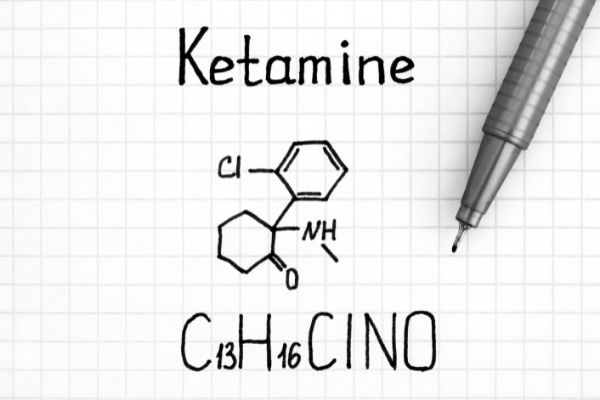Interest in ketamine has increased over the past years, but most recently over the past months. Ketamine therapy, ketamine infusions, and other uses for ketamine, including treatment for alcoholism. This buzz started after new studies suggested that ketamine could be a helpful treatment for alcohol use disorder. Read on to learn more about ketamine and its connection to alcoholism treatment.
What Is Ketamine?
Ketamine is primarily used as an anesthetic. It’s considered a dissociative drug that can produce detachment from reality. Ketamine is found illegally on the streets as Special K, Kit Kat, Super K, Vitamin K, and other names. It’s found as a white or off-white powder, pills, or liquid form.
Ketamine for Alcoholism Treatment
New studies suggest that using low levels of ketamine combined with therapy can help people with alcohol use disorder (AUD) stay sober longer.
The clinical trial found that a combination of ketamine in low doses combined with therapy helped participants stay entirely sober for 162 days. This was an 87 percent abstinence, considered significantly higher than any other group.
Overall, patients in the ketamine group were 2.5 more likely to remain abstinent at the end of the trial than the participants in the placebo group.
However, there isn’t a comparison to other forms of alcoholism treatment like naltrexone or acamprosate. Still, ketamine has also been shown to improve depression symptoms, which is why some researchers believe it can positively impact alcohol addiction treatment.
How It Works
Ketamine induces overall dissociation, providing pain relief and sedation. While most people use it as a recreational drug, ketamine is gaining momentum as a potential treatment for addiction.
When used at very low doses, ketamine can act as an antidepressant that helps block out the depressive feelings associated with alcohol abuse. Combined with behavioral therapy, it can help patients change thought patterns that usually lead to relapse.
Overall, ketamine treatment can help people suffering from alcoholism be more open to learning new coping mechanisms without experiencing depressive thoughts of recovery.
The Dangers of Ketamine for Alcohol Abuse Treatment
Ketamine is a powerful drug. Without the proper medical supervision, ketamine can easily lead to addiction. It’s essential to count on the support of a professional therapist who understands the best way to incorporate ketamine in your treatment to avoid the pitfalls of the drug.
When people combine ketamine with alcohol, the combined effects can be unpredictable and dangerous. Since both drugs act as depressants, it could lead to slow functioning of the heart and lungs, which could be fatal.
Ketamine alone also causes withdrawal symptoms. People can experience physical and psychological withdrawal symptoms, including cravings, chills, restlessness, anxiety, rapid heartbeat, tremors, and depression.
Because ketamine is highly addictive, it can also lead to long-term health effects that could be detrimental. People who take large amounts of ketamine or acquire a strong batch from the streets could overdose. While the risk of death from ketamine alone is low, it can cause permanent brain damage and risk of injuries or accidents.
Finding Treatment for Alcoholism
When it comes to alcohol abuse treatment, there isn’t a one-size-fits-all. Treatment depends on the severity of the addiction, the time of the addiction, and whether or not someone has co-occurring disorders. Most people will need inpatient or outpatient treatment programs combined with 12-Step programs to achieve long-lasting addiction recovery.
The most common types of treatment for alcoholism include:
-
- Detox: A supervised detox program helps people safely withdraw from alcohol while a team of experts monitors withdrawal symptoms.
- Behavioral therapy: Individual and group therapy is critical to help patients reframe destructive thoughts and learn coping mechanisms to prevent relapse after leaving treatment.
- Medications: Sometimes, medications, including ketamine, might help people stop or reduce their drinking and prevent relapse. The only three medications approved by the FDA to treat alcoholism are naltrexone, acamprosate, and disulfiram.
- Support groups: Throughout rehab and after treatment attending peer support groups like Alcoholics Anonymous and other 12-Step programs can offer a sense of support and accountability that helps prevent relapse and sustain recovery.
If you or someone you know is dealing with alcohol use disorders, please seek help. Addiction recovery is possible, whether you start a treatment that uses ketamine prescribed by a trusted professional or try a traditional inpatient rehab program.
Sources:
https://adf.org.au/drug-facts/ketamine/
https://ajp.psychiatryonline.org/doi/10.1176/appi.ajp.2021.21030277
